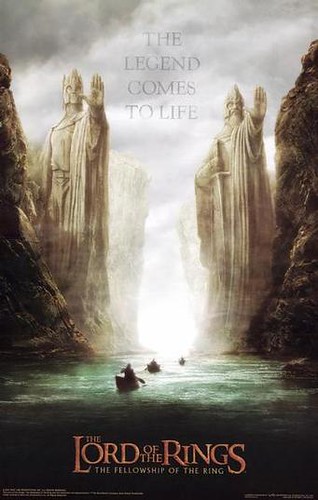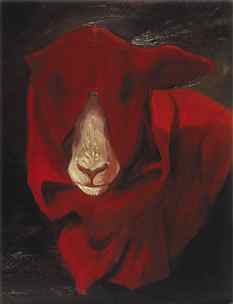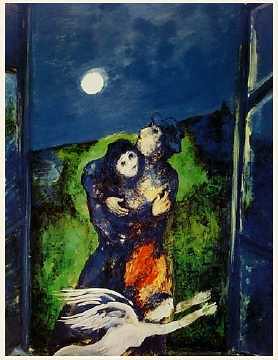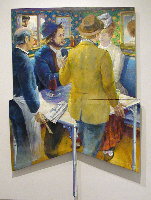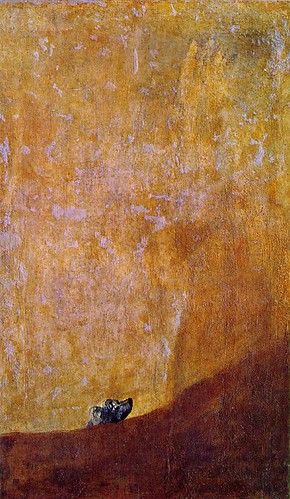
Dog sinking in sand, or water? Goya
"Little Emerson" is an experiment, of sorts. It is a blog entirely dedicated to the publication of poetry. There is no formal definition for this blogzine. There is no theory, no clique. I initially chose—quite randomly ten bloggers as possible editors for Little Emerson. When I say randomly I lie, of course, because I had to think of different sensibilities and then picked as “randomly” as I could within those sensibilities. Mind you, I had to pick some people I don’t particularly agree with, but which I respect. Nine of the ten chosen agreed to participate. These editors do not know each other. This is important. They only know me as they must since I will act solely as messenger. The editors represent various personalities, various ways of looking at poetry, various styles. My job is not to get them to agree, but to get them to read, individually, poems submitted by others for publication in this cheap medium.
All of the editors must unanimously agree on a poem before it can get published. I repeat: the editors do not know each other. They will not know each other. There will be no group, no clique. No one will know who they are except me and they all have MY WORD HERE, quite publicly, THAT THEIR IDENTITIES WILL NEVER BE KNOWN without their express, written authorization and consent. I, for one, don’t really care who they are as long as they try to choose, sincerely, what they would like to see published here. Also, only I will know the names of the authors who submit their work, any type, any length. Kill with line breaks, coded-language, symbols, or rhyme to your heart’s desire. The editors must only choose what they like. They may simply say “no” to a poem. Period. No strings attached. Or they may reason their choices. Up to them. If they reason I will let the submitting poet know the content of the editor’s comments. Nothing more. There must be a 100 % consensus or a poem will not be published. Nil. Zero. Zip.
As you can see it is quite possible that "Little Emerson" may be the only poetry blogzine with empty pages in the blogosphere. But remember that this is an experiment, of sorts. Try to get published here. It will be an absolute miracle. A near impossibility or will it? There are no prizes, no notoriety, no tenure. But who knows what the future can bring. Taste and judgment are awfully tricky things.
Alberto Romero Bermo
P.S. The editors themselves may choose to submit their work. Their families and lovers may also submit their work. Anyone and everyone can submit. No holds barred. And God forbid: no stamps.
All submissions by e-mail to romero.bermo@gmail.com in e-mail body or word attachment. No guidelines: just send poetry in.
